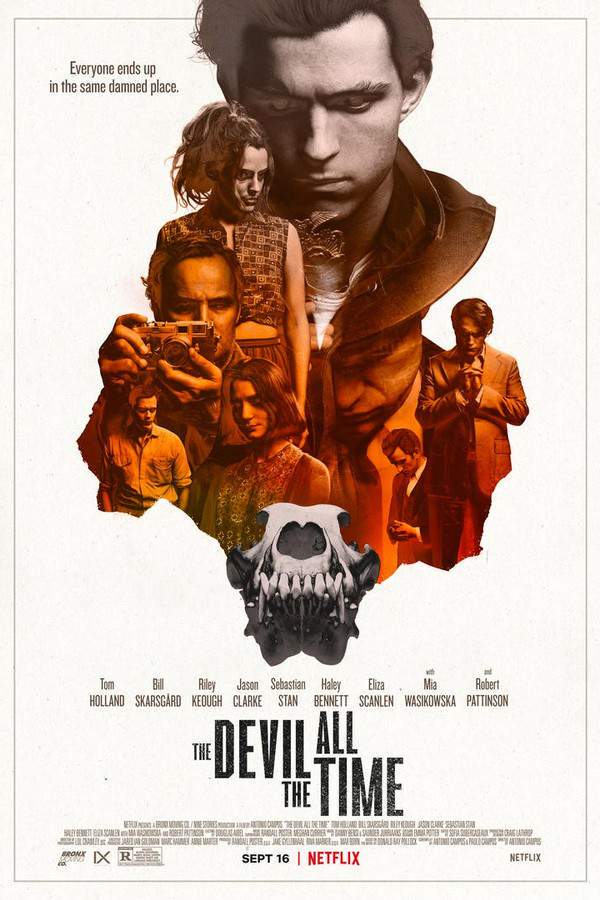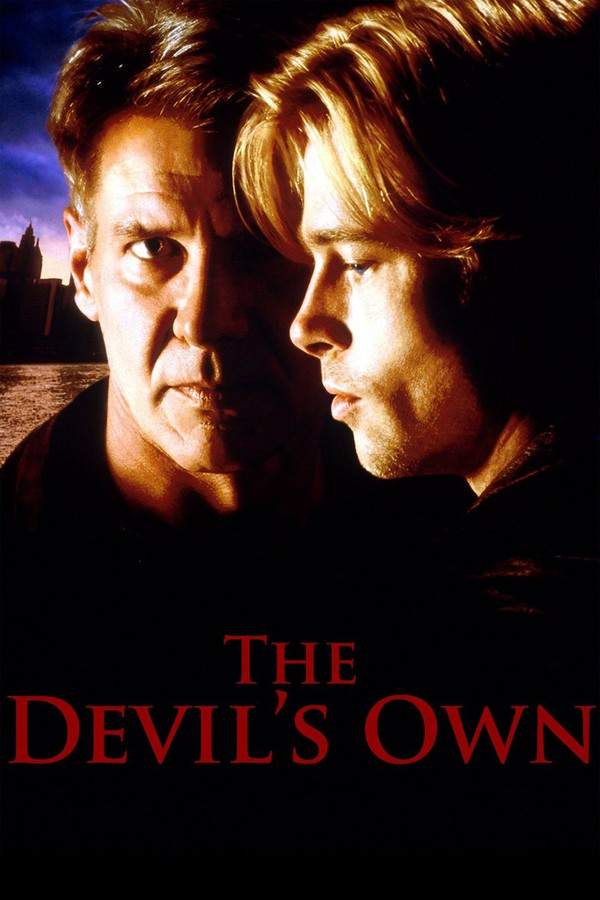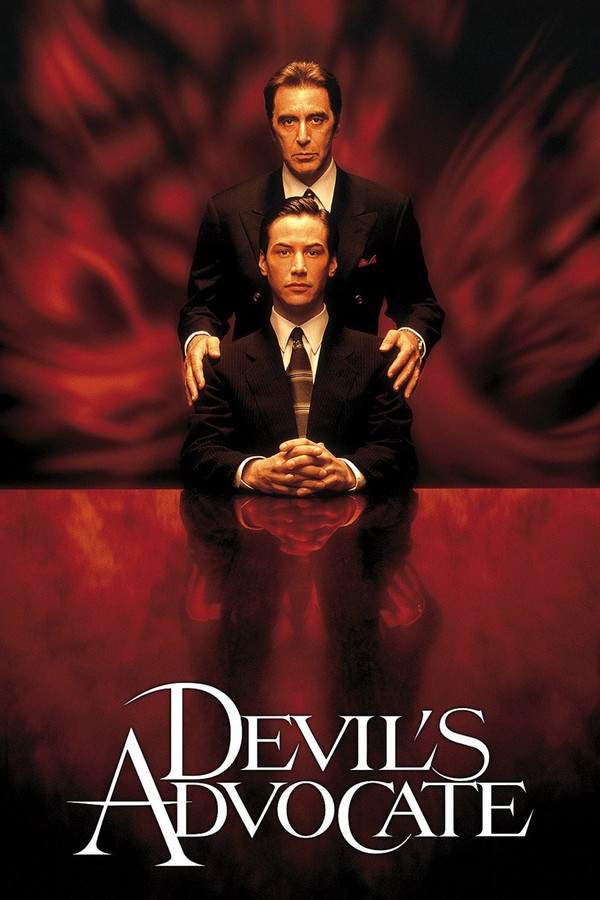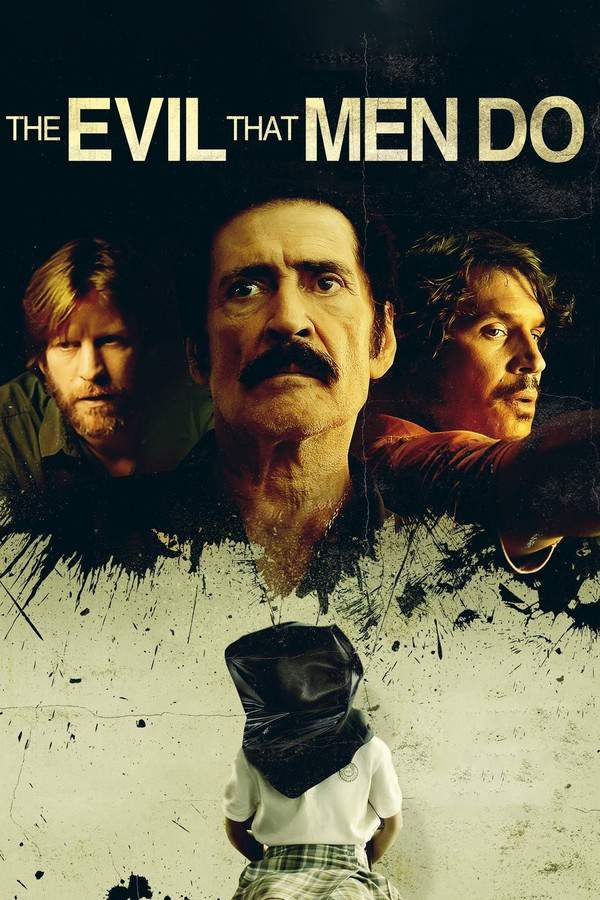
The Devil's Double 2011
Directed by
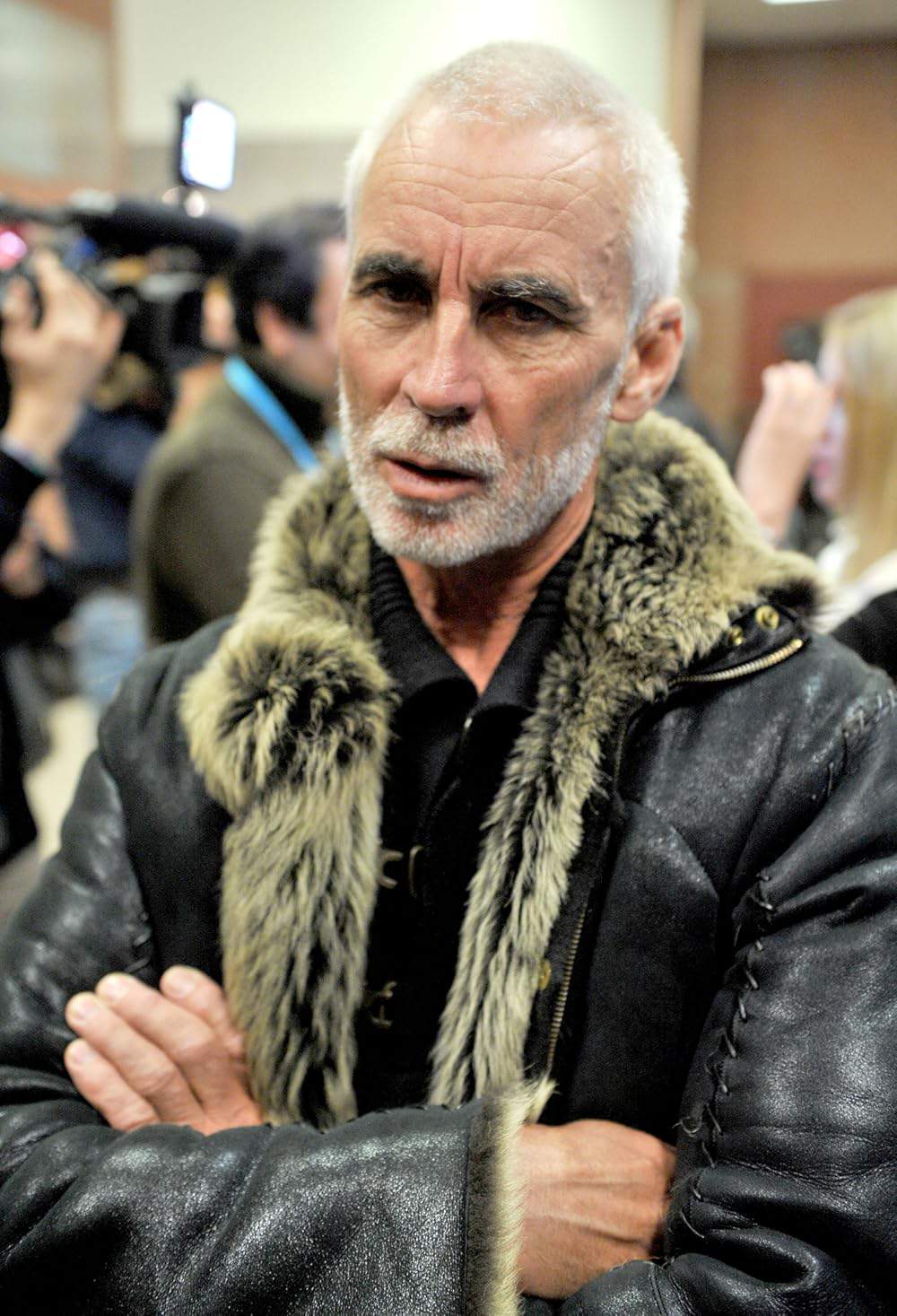
Lee Tamahori
Made by

Herrick Entertainment
Test your knowledge of The Devil's Double with our quiz!
The Devil's Double Plot Summary
Read the complete plot summary and ending explained for The Devil's Double (2011). From turning points to emotional moments, uncover what really happened and why it matters.
In 1985 Iraq, during the tumultuous Iran-Iraq War, Latif Yahia (Dominic Cooper), a soldier, finds himself in an unimaginable situation when he’s summoned to become a fedai, a political decoy for Uday Hussein (Dominic Cooper), the notorious and playboy son of President Saddam Hussein (Philip Quast). Hailing from an upper-class family, Latif is often reminded of how alike he looks to Uday due to their shared past in school. Initially resisting this dangerous role, Latif’s defiance is broken when he faces imprisonment and torture, ultimately succumbing to the demands of the regime under threats to his family.
Latif undergoes cosmetic procedures to enhance his resemblance to Uday and spends the next three years mastering the art of impersonation, mimicking Uday’s wild personality and tendencies. Living in luxury, he indulges in extravagant lifestyles, including vast palaces and sportscars like Uday’s Ferrari Mondial 3.2. Despite the allure of this new life, Latif grapples with the immoral actions that come with it. In a desperate attempt to reconnect with his family, whom he believes think he has perished, he makes a dash away from the hedonistic parties, only to be caught and severely punished by Uday’s guards.
As tensions rise, Uday’s character grows even more unpredictable and violent. His sadism is starkly illustrated when he kidnaps a 14-year-old girl, forcing her to attend a party with him. The shocking event culminates in a monstrous display of brutality when Uday, enraged by his personal bodyguard Kamel Hana Gegeo (Mehmet Ferda)’s intervention, murders Gegeo with an electric carving knife, leaving a chilling mark of his madness. In a subsequent hospital scene, Saddam lashes out at Uday, practically lamenting, > “I should have killed him at birth.”
In January 1991, as the war intensifies and the Coalition forces make their move, Latif is ordered to Basra to rally support amongst Republican Guard soldiers. Yet with danger lurking, an assassination attempt on Latif reveals the stakes of his continued impersonation, narrowly avoiding a life-changing injury. In a moment of confrontation, he is urged by the father of Uday’s slain victim to seek justice, which Uday coldly flips into a demand for murder, leading Latif to a place of despair and defiance, even going so far as to injure himself.
His journey takes a new turn when, alongside Uday’s lover Sarrab (Ludivine Sagnier), who falls for Latif, they attempt to escape to Malta. However, the looming threat of Uday remains ever-present, rearing its head as Sarrab, driven by fear for her child in Iraq, calls back to Uday, betraying Latif’s trust.
Ultimately, Latif’s resolve hardens as he decides to return—not as Uday’s puppet, but with the intent to end the tyranny of Uday. Partnering with an ally motivated by vengeance, they attempt to bring an end to Uday’s reign of terror during a 1996 assassination attempt that mirrors the real-life events. In a brutal encounter, they leave Uday severely injured, and in a twist of fate, Latif faces an unexpected act of mercy from a bodyguard.
In the final framing of Latif’s story, viewers discover that he lives under a new identity in Ireland with a family of his own, having chronicled his harrowing experiences in a book. Though Uday survived the assassination attempt, he carries lasting repercussions, ultimately falling victim to U.S. forces in the 2003 invasion.
The Devil's Double Timeline
Follow the complete movie timeline of The Devil's Double (2011) with every major event in chronological order. Great for understanding complex plots and story progression.
Latif's Summoning
In 1985, amidst the chaos of the Iran-Iraq War, soldier Latif Yahia is unexpectedly summoned by the regime to become a fedai, or political decoy, for Uday Hussein. This request comes as he is reminded of his physical resemblance to Uday, stemming from their school days together, which complicates his already tumultuous life.
Resistance and Consequences
Initially resistant to the regime's demands, Latif's defiance leads to dire consequences as he faces imprisonment and brutal torture. Faced with threats against his family, he ultimately submits to the pressures of Uday's world, beginning a dangerous journey.
Cosmetic Transformation
To effectively impersonate Uday, Latif undergoes extensive cosmetic procedures, enhancing his resemblance to the playboy son of Saddam Hussein. Over the following three years, he masters Uday's larger-than-life persona and lifestyle, which immerses him in opulent luxury.
Living the High Life
Latif enjoys a life filled with opulence, including extravagant parties, luxurious palaces, and expensive cars like Uday's Ferrari Mondial 3.2. Despite the allure of his new existence, he wrestles with the moral implications of his actions and the violent tendencies of Uday.
Desperation for Family
In a bid to reconnect with his family, Latif attempts to escape Uday's decadent lifestyle. However, his escape is short-lived as he is captured and severely punished by Uday’s guards, reinforcing his entrapment in this perilous situation.
Uday's Unpredictability
As tensions escalate in Iraq, Uday's volatility becomes increasingly apparent. This is especially evident when he abducts a 14-year-old girl to attend a party, showcasing his sadistic tendencies and culminating in the murder of his own bodyguard, Kamel Hana Gegeo, in an act of rage.
Saddam's Fury
After the shocking murder, Saddam Hussein lashes out at Uday, expressing regret about his son's existence. This moment reveals the deep familial discord and the chilling reality of Uday's erratic behavior, leaving a haunting impression of his madness.
Orders to Basra
In January 1991, as the Gulf War escalates, Latif is dispatched to Basra to rally support among Republican Guard soldiers. The tension of the situation culminates in a near-fatal assassination attempt on him, highlighting the perilous nature of his impersonation.
Call to Justice
Latif is confronted by the father of one of Uday's victims, who urges him to seek justice. In a moment of intense pressure, Latif teeters on the edge of despair as Uday flips the conversation, demanding further violence, pushing Latif to the brink.
Attempted Escape with Sarrab
Latif and Uday's lover, Sarrab, attempt a daring escape to Malta, hoping to break free from Uday's violence. However, Sarrab’s fear for her child's safety leads her to betray Latif, leaving him vulnerable once again to Uday's wrath.
Rebellion Against Uday
Determined to reclaim his life, Latif plots to return not as Uday’s puppet but to confront him. Partnering with an ally driven by vengeance, he embarks on a dangerous mission to put an end to Uday's terror during a 1996 assassination attempt.
Confrontation and Injury
The assassination attempt culminates in a brutal confrontation where Latif and his ally manage to severely injure Uday. In a twist of fate, Latif surprisingly receives an act of mercy from one of Uday's bodyguards, marking a pivotal moment in his struggle.
New Identity in Ireland
Following the assassination attempt, Latif successfully changes his identity and relocates to Ireland, where he starts a new life with a family of his own. He pens a book chronicling his harrowing experiences, providing a lens into the tumult of his past.
Uday's Downfall
Although Uday survives the assassination attempt, he ultimately meets his end at the hands of U.S. forces during the 2003 invasion of Iraq. His demise underscores the brutal consequences of a regime defined by violence and tyranny.
The Devil's Double Characters
Explore all characters from The Devil's Double (2011). Get detailed profiles with their roles, arcs, and key relationships explained.
Latif Yahia
Latif Yahia is a soldier coerced into the life of a political decoy for Uday Hussein. Initially resistant, he becomes a tragic figure, embodying the loss of personal agency and identity through his transformation. Latif's journey is marked by internal conflict as he navigates the excesses of power while yearning for his family and moral redemption.
Uday Hussein
Uday Hussein is depicted as a volatile and sadistic character, indulging in excess and brutality. His unpredictable nature creates a climate of fear among those around him, particularly Latif. Uday's actions reflect the extremes of power abuse and the personal ramifications of his decisions lead to chaos and violence.
Sarrab
Sarrab is Uday's lover who becomes entwined in the dangerous game between Uday and Latif. Her character reflects the vulnerabilities and tough choices women face under oppressive regimes. Despite her complex feelings for Latif, she ultimately matches her survival instincts with the expectations imposed by Uday.
The Devil's Double Settings
Learn where and when The Devil's Double (2011) takes place. Explore the film’s settings, era, and how they shape the narrative.
Time period
1985-1996
The film spans significant years during the Iran-Iraq War, revealing the political climate and social struggles faced by individuals at the time. The late '80s illustrate a period of brutality and political manipulation, culminating in the chaotic early '90s, marked by the Coalition forces' actions and Uday's violent reign. The story closes with events paralleling the lead-up to the 2003 invasion, adding historical depth to Latif’s journey.
Location
Iraq, Malta
The movie takes place in Iraq during the turbulence of the Iran-Iraq War, characterized by political upheaval and oppression. It highlights locations such as palatial settings reflecting the opulence of Uday Hussein’s lifestyle. In the later portion of the film, Malta serves as a brief refuge where Latif and Sarrab seek to escape the dangers of Uday's tyranny.
The Devil's Double Themes
Discover the main themes in The Devil's Double (2011). Analyze the deeper meanings, emotional layers, and social commentary behind the film.
⚔️
Betrayal
Betrayal is a central theme explored through Latif’s experiences, leading to his relationship fractures and the dangerous dynamics with Uday. The emotional betrayal Latif feels when Sarrab returns to Uday exemplifies the dire consequences of trust in an oppressive regime. It serves to highlight the desperation and moral dilemmas individuals face in survival.
🪓
Violence
The film starkly portrays the violence inherent in the political turmoil of Iraq, illustrated by Uday's sadistic behavior and violent outbursts. This theme permeates Latif’s life, showcasing the brutality one must confront within a tyrannical political system. The graphic nature of Uday's actions underscores the extreme lengths to which individuals would go to maintain power.
👥
Identity
Latif's struggle with identity is a significant theme, as he is forcibly molded to impersonate Uday, leading to a conflict between his true self and the facade he must maintain. Navigating this duality shapes his character arc and highlights the broader struggle of personal identity amid manipulation and coercion. His journey ultimately leads to reclaiming his autonomy.

Coming soon on iOS and Android
The Plot Explained Mobile App
From blockbusters to hidden gems — dive into movie stories anytime, anywhere. Save your favorites, discover plots faster, and never miss a twist again.
Sign up to be the first to know when we launch. Your email stays private — always.
The Devil's Double Spoiler-Free Summary
Discover the spoiler-free summary of The Devil's Double (2011). Get a concise overview without any spoilers.
In the shadow of the Iran‑Iraq War, a young soldier named Latif is summoned into the inner circle of a regime where power is displayed through extravagance and terror. The Iraq of the mid‑1980s is a place of stark contrasts: bombed cities and desert frontlines sit beside glittering palaces, roaring sports cars, and opulent gatherings that mask a constant undercurrent of danger. Within this world, Latif discovers that his striking resemblance to the president’s notorious son offers a terrifying opportunity—he is asked to become the official double for Uday, the flamboyant heir whose whims dictate the mood of the entire court.
Accepting the role means surrendering his own identity and stepping into a life of decadence that is both alluring and suffocating. As Latif learns to mimic the younger man’s mannerisms, he is thrust into a precarious balance between survival and complicity, forced to navigate a social landscape where loyalty is bought with fear and every gesture is watched by a cadre of watchful guards. The film’s tone is a relentless blend of sleek, almost cinematic luxury and the gritty tension of a man living under a perpetual threat, creating an atmosphere that feels both intoxicatingly grand and chillingly claustrophobic.
Amid the opulent excess, Latif’s interactions with Sarrab, a woman tied to the inner circle, hint at a fragile human connection that could become his anchor—or his undoing. Their relationship, set against the backdrop of looming conflict and an ever‑tightening grip of authority, adds a delicate layer of intimacy to an otherwise stark narrative. The story teeters on the edge of a personal dilemma: whether to cling to the safety of a fabricated persona or to risk everything for a chance at reclaiming his own life in a world that demands total surrender.
Can’t find your movie? Request a summary here.
Movies with Similar Twists and Themes
Uncover films that echo the narrative beats, emotional arcs, or dramatic twists of the one you're exploring. These recommendations are handpicked based on story depth, thematic resonance, and spoiler-worthy moments — perfect for fans who crave more of the same intrigue.
Featured on this page

What's After the Movie?
Not sure whether to stay after the credits? Find out!
Explore Our Movie Platform
New Movie Releases (2025)
Famous Movie Actors
Top Film Production Studios
Movie Plot Summaries & Endings
Major Movie Awards & Winners
Best Concert Films & Music Documentaries
Movie Collections and Curated Lists
© 2025 What's After the Movie. All rights reserved.


